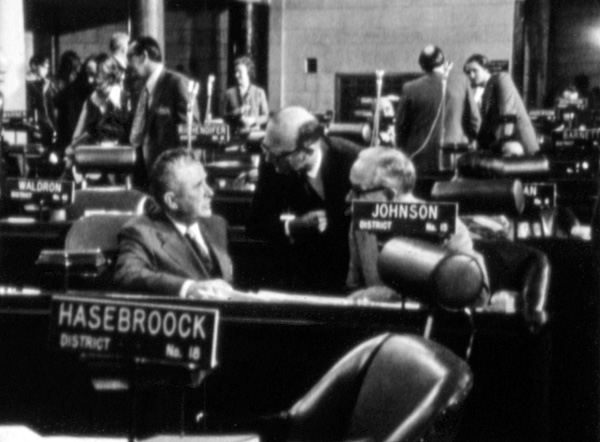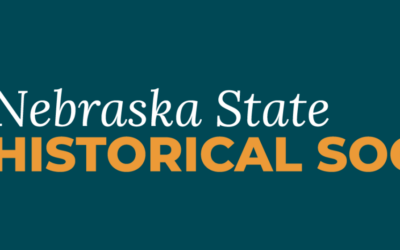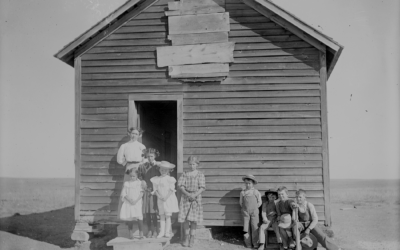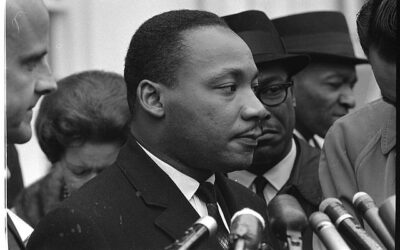Policy-making has always been a delicate business with a lot of formal rules that must be followed. But as Nebraska State Senator Bill Avery explains in the Spring 2013 issue of Nebraska History, there is an equally important set of unspoken “folkways” that regulate the Nebraska Unicameral.
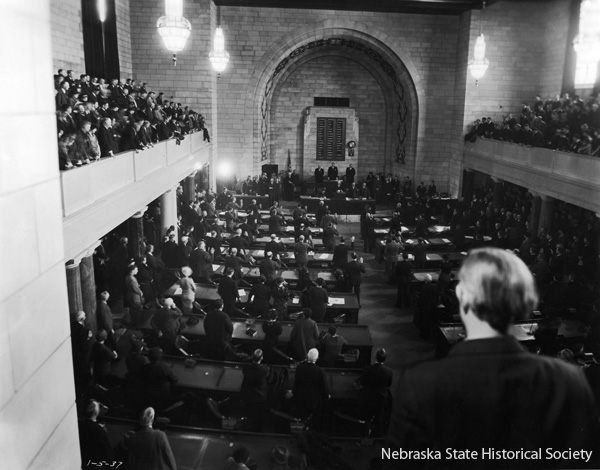
Opening day of Nebraska’s first unicameral legislative session, January 5, 1937. U. S. Senator George Norris, a staunch advocate of unicameralism, is standing on the back of the platform. RG2183-1937-105-2 (above).
As in any professional setting, respect is vital. Avery explains how collegiality is especially important in such a small legislature where it is possible to get to know everyone. Members are addressed as “Senator,” debates should not become personal, and profanity is prohibited.
This respect also means acknowledging others’ areas of expertise. Since issues come through the legislature on a wide variety of topics, senators who try to be a main player in every bill may lose credibility; it is better for senators to specialize on specific areas. It is considered rude to undermine the authority of committees by using formal rules, since legislators generally belong to a committee based on their particular interests and skills.
Another folkway concerns legislators’ relationships with lobbyists. Avery describes the push and pull between needing lobbyists and checking their power.
“Members always have recognized…that lobbyists are an important and vital part of the legislative process. To be sure, lobbyists are advocates for special interests, but more importantly they are sources of information. In order to perform their duties in a rational and informed manner, senators rely on lobbyists to provide them with reliable and factual information on the vast number of issues they confront in every session. Despite the need for lobbyists, senators are expected to respect the arm’s length relationship that has evolved over the decades…Members do not enhance their standing among their colleagues if they are perceived to be a consistent voice for a particular segment of the lobby in making policy.”
On the floor of the Unicameral, from “Nebraska for the People, Part 1: Legislature,” a 1974 documentary film produced by University of Nebraska television.
The stereotype is that all unspoken rules in politics have to do with back-room deals and party dogma. However, as Senator Avery illustrates, many unspoken rules in the Unicameral serve to make it more efficient and professional. Whether helpful or not, these folkways are a part of our state leadership, and understanding them can better help us understand the political decisions that affect us all.
–Joy Carey, Editorial Assistant

